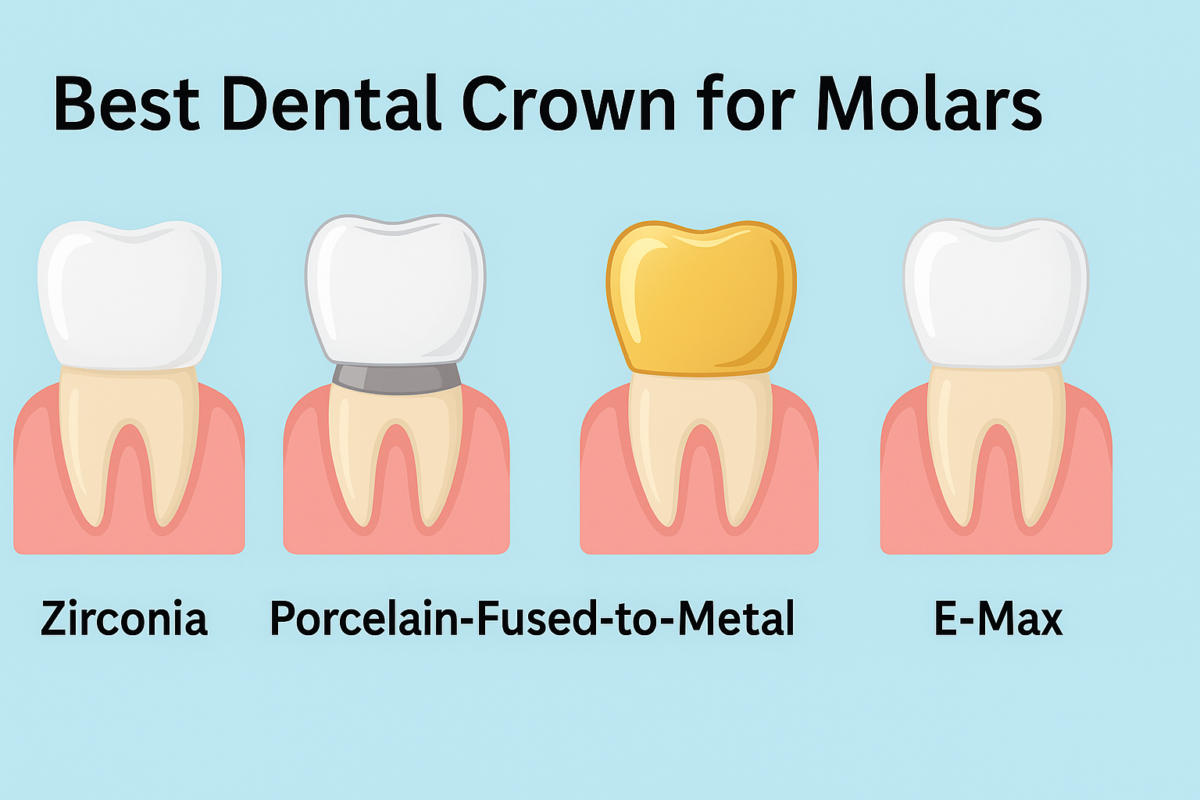
How long do dental crown last
Dental crowns are one of the most common and reliable restorations in modern dentistry. Whether you’re getting one for a root canal-treated tooth or to protect a cracked or worn-down tooth, understanding how long dental crowns last is crucial for making an informed decision.
🦷 Introduction: What Are Dental Crowns and Why Are They Used?
A dental crown is a tooth-shaped cap placed over a damaged or decayed tooth to restore its shape, size, strength, and appearance. It’s commonly recommended in cases of:
- Severe tooth decay
- After root canal therapy
- Cracked or worn teeth
- Cosmetic restoration
- Replacing large fillings
The lifespan of dental crowns varies depending on the type of crown material, oral hygiene, and habits like teeth grinding.
⏳ Average Lifespan of Dental Crowns
| Crown Type | Average Lifespan |
| Zirconia crowns | 10–20 years |
| Porcelain-fused-to-metal | 5–15 years |
| All-ceramic/porcelain | 5–10 years |
| Metal (gold/alloy) crowns | 15–25+ years |
| E-max crowns | 10–15 years |
| Temporary crowns | 2 weeks – 6 months |
With good care, some crowns may last 25–30 years or even a lifetime.
🔍 What Determines the Longevity of Dental Crowns?
- Material Type
- Zirconia: Highly durable and aesthetic.
- Porcelain-Fused-to-Metal (PFM): Strong but porcelain may chip over time.
- Gold/Metal: Longest-lasting but less aesthetic.
- E-max (Lithium Disilicate): Great aesthetics and strength for front teeth.
- Tooth Location
- Molars: Experience more chewing pressure; need more durable crowns like zirconia or gold.
- Front teeth: Less pressure, better suited for porcelain or E-max crowns.
- Oral Hygiene
- Brushing twice daily
- Flossing to prevent gum disease or decay at crown margins
- Habits That Affect Crown Life
- Teeth grinding (bruxism)
- Chewing on hard objects (ice, pens)
- Nail biting
- Poor oral hygiene or neglect
🛠️ Signs That Your Crown May Need Replacement
- Cracked or chipped crown
- Pain or sensitivity near crown
- Loose crown
- Receding gums around crown
- Dark lines near the gum (in PFM crowns)
🧼 Tips to Increase the Lifespan of Your Dental Crowns
- Use a soft-bristled toothbrush
- Avoid hard/sticky foods like candies, nuts
- Wear a nightguard if you grind your teeth
- Go for regular dental check-ups (every 6 months)
- Avoid smoking and excessive alcohol intake
🧾 Cost Factor vs. Durability
Sometimes people go for cheaper crowns and later face issues like breakage, repeated replacements, or aesthetic concerns. Investing in premium quality crowns like zirconia or E-max may cost more initially but saves on repairs and discomfort in the long run.
✅ Conclusion: Is It Worth It?
Dental crowns are a long-term investment in your oral health and aesthetics. With proper care and the right material choice, they can serve you well for 10 to 25+ years. Talk to your dentist about your oral habits, needs, and budget to choose the most suitable crown type.
Related Reads
Complete Guide to Dental Crowns: Types, Materials, Cost & Best Choices for You
Root Canal with Crown vs Without Crown: What You Need to Know
Best Dental Crown for Molars: A Complete Guide
Zirconia vs Porcelain Crown: Which One is Better?
Dental Crown Procedure Step-by-Step: What to Expect Before, During & After
Temporary vs Permanent Dental Crown: Key Differences, Lifespan, Care & FAQs
Crown vs Cap Difference: Understanding the Truth Behind Dental Terms
❓ 10 FAQs About Dental Crown Lifespan
- Can a dental crown last a lifetime?
Yes, especially metal crowns like gold, with excellent care. - Which crown lasts the longest?
Metal crowns (gold or alloys), followed by zirconia. - Do crowns need to be replaced after root canals?
Eventually, yes—though they can last 10–15+ years. - Is it normal for crowns to fall off?
No, but poor fit or cement failure can cause it—see a dentist immediately. - How do I know if my crown is wearing out?
Sensitivity, pain, or visible cracks/chips. - Does insurance cover replacement crowns?
Often yes, but check your policy for time intervals. - Can decay form under a crown?
Yes, if oral hygiene is poor or crown margins leak. - Do crowns discolor over time?
All-ceramic crowns might slightly stain but less than natural teeth. - Do I need a crown after every RCT?
Mostly yes—especially for back teeth—to prevent fracture. - Can I whiten a discolored crown?
No, crowns don’t respond to whitening; replacement may be needed.


